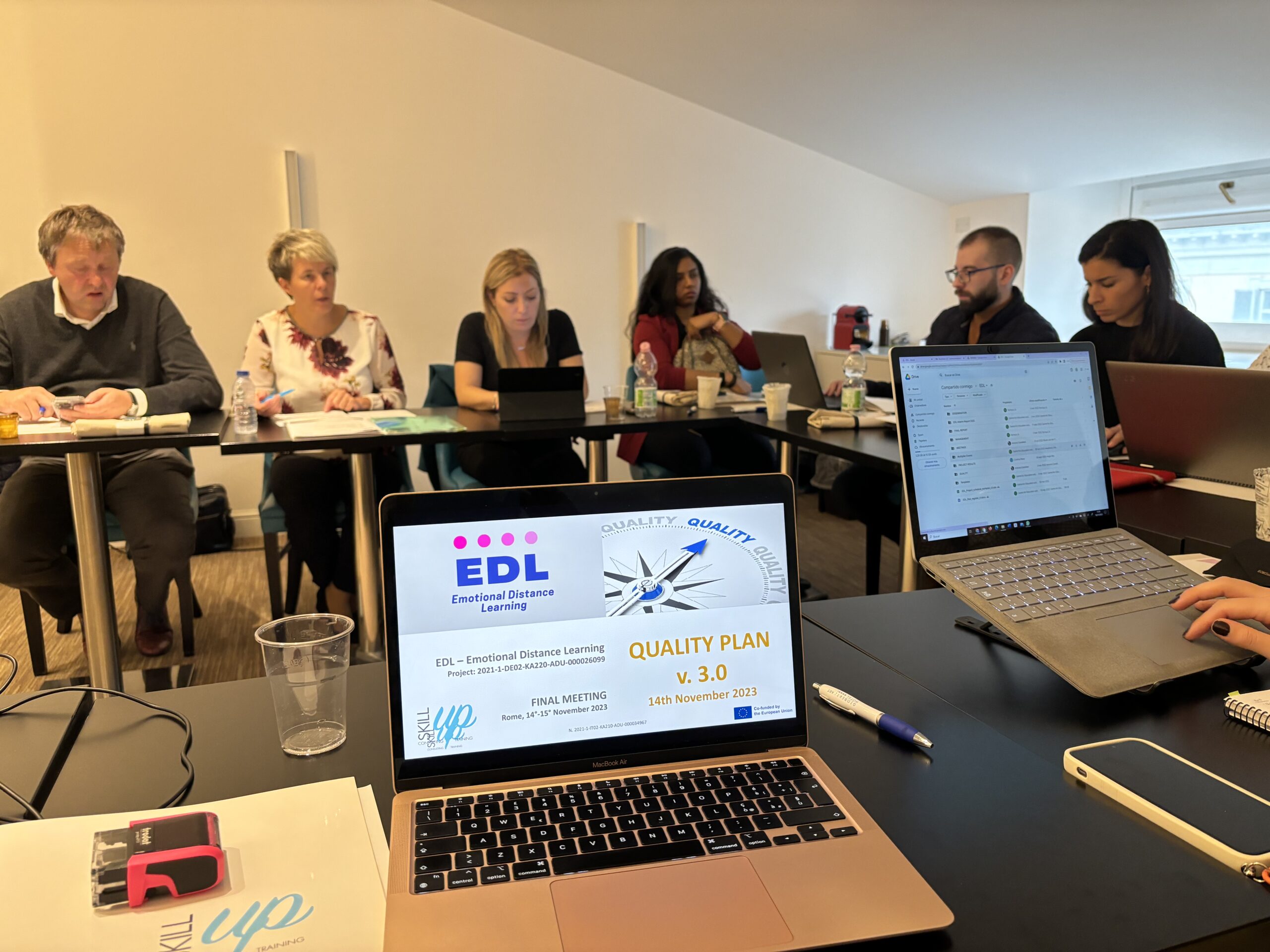By Jelena Zascerinska
Hochschule Wismar, Germany
The future comes with surprises (OECD, 2022).
Surprises bring challenges to educators and education policy makers (OECD, 2022).
Therefore, already today scientists, researchers, teachers, entrepreneurs, IT specialist, futurist and many other professionals make great attempts to shape Education 2050 in order to gradually evolve trends and to abrupt systemic shocks. It is worth noting that Education 2050 also comprises adult education and learning (including distance learning) as illustrated in Figure 1.

Figure 1: The relationships between Education 2050 and adult education and learning
Changes reshape the world in general and education in particular.
Some changes become pervasive and persistent that make them a trend.
A trend indicates the direction of the development of education as shown in Figure 2.

Figure 2: The inter-connections between change, trend, and direction
Adult education and learning are an emotional process (Ahrens & Zascerinska, 2023). The complexity of emotions in adult education and learning is increased by different and contradictory emotions between the teacher and learners or, in other words, from the interpersonal perspective.
Well-known functions of the emotions are determined to be evaluative (Burkit, 2021) and motivating (Leont’ev, 1978). Another concept of the six functions of the emotions was presented by Ilyin (Ильин, 2004):
- the protective function: associated with fear, both imaginary and real. Fear protects people from unpleasant situations or unintended consequences, sometimes even from death;
- the mobilising function: both negative (fear) and positive (inspiration, joy) emotions mobilise the body’s reserves for activity;
- compensatory function: emotions can compensate for missing information for making or evaluating a decision;
- signalling function: the external expression of emotional expression gives an opportunity to express or warn about the emotional state, mood or effect of the respective moment;
- stabilising function: positive emotions that arise when achieving a goal are stored in the memory and can be used in another situation to achieve a similar goal. Negative emotions are also used to warn of wrongdoing;
- disorganising function: strong emotions sometimes disorganise a person’s behaviour or action (great fear or euphoria).
Success in education today is about mobilising emotional resources to contribute actively to society (OECD, 2022).
When speaking about Education 2050, the idea that emotional learning is as important as the development of cognitive domains is gaining traction (OECD, 2022). Emotions’ functions relate to the motivational and wellbeing conditions for learning to be effective and sustainable (OECD, 2022). Therefore, emotional conditions are considered for effective teaching and learning in the frameworks for assessing students’ learning outcomes (OECD, 2022).
Another function of the emotions in Education 2050 is proposed by futurist Leonhard (2023) that emotions in education, training and learning will be needed to unlock skills, minds, and bodies.
Considering our development model demonstrated in Figure 2 that proceeds from change through trend to direction, our conclusions are presented in Table 1.
Table 1: Change, trend, and direction related to emotions in Education 2050
| Nr. | Phenomenon | Emotions in Contemporary Education | Emotions in Education 2050 |
| 1 | Change | Function of emotions is to mobilise the body’s reserves for activity | Function of emotions is – to ensure individual’s wellbeing and – to unlock individual’s skills, minds, and bodies |
| 2 | Trend | Use of emotions, as a psychological phenomenon (Ahrens & Zaščerinska, 2014), defined as nerve impulses Kriumane, 2013) and similar | The increase in leveraging of emotions as an educational category, namely emotional skills (OECD, 2019) |
| 3 | Direction | Emotions are factors that impact the educational process | Emotions in education are – skills (OECD, 2019) and – learning outcome (OECD, 2022) |
References
Ahrens, A., Zascerinska, J. (2023). Teachers’ Emotional Experience in Online Classes in Adult Education in Selected European Countries. World Academy of Science, Engineering and Technology International Journal of Educational and Pedagogical Sciences Vol:17, No:3, 2023. International Scholarly and Scientific Research & Innovation 17(3) 2023, pp. 154-159. ISNI:0000000091950263. publications.waset.org/10013012/pdf.
Ahrens, A., Zascerinska, J., Filimonova, D., Bikova, A. (2023). How Emotions are Developed: Insights from Vygotsky’ and Leontiev’ Works.SOCIETY. INTEGRATION. EDUCATION. Proceedings of the International Scientific Conference. Volume II, May 26th, 2023. 232-242. https://doi.org/10.17770/sie2023vol2.7116 . http://journals.rta.lv/index.php/SIE/article/view/7116/6138
Burkitt, I. (2021). The Emotions in Cultural-Historical Activity Theory: Personality, Emotion and Motivation in Social Relations and Activity. Integr. psych. behave, 55, 797–820.
Hiltunen, Elina (2023). “Megatrends and the future of skills”. International Forum for Visionaries & Leaders Steering Education: From Engagement to Empowerment. Riga, Latvia. June 8, 2023. https://futures2050.lv. https://www.youtube.com/watch?v=OiyTvlZFdg4
Leonhard, Gerd. (2023). “Artificial intelligence and the future of human work, learning and training”. International Forum for Visionaries & Leaders Steering Education: From Engagement to Empowerment. Riga, Latvia. June 8, 2023. https://futures2050.lv. https://www.youtube.com/watch?v=OiyTvlZFdg4
Leont’ev, A. N. (1978). Activity, Consciousness, and Personality. Prentice-Hall. Retrieved from http://marxists.org/archive/leontev/works/1978/ch5b.htm
OECD (Organisation for Economic Cooperation and Development) (2022). Building the Future of Education. The Secretary-General of the OECD. https://www.oecd.org/education/future-of-education-brochure.pdf
OECD (Organisation for Economic Cooperation and Development). (2019). Future of Education and Skills 203. Conceptual learning framework. Concept note: Skills for 2030. OECD https://www.oecd.org/education/2030-project/teaching-and-learning/learning/skills/Skills_for_2030.pdf
Ильин, Е. П. (2004). Психология [Psychology]. Москва, Санкт-Петербург: Питер.
Ahrens, A., Zaščerinska, J. (2014). Students’ Attitude to Interdisciplinary Research. Society, Integration, Education. Proceedings of the International Scientifical Conference. Volume I: Higher Education Institutions Pedagogy, School Pedagogy, Pre-School Pedagogy. May, 23th-24th, 2014, pp. 13-23. – Rēzekne: Rēzeknes Augstskolas Izdevniecība, 2014. – p 616. ISSN 1691-5887 ISBN 978-9984-44-140-5. http://www.ru.lv/ckfinder/userfiles/RAweb/Saturs/zinatne/zinatniskie_instituti/personas_socializacijas_petijumu_instituts/izdevumi/2014/I_DALA.pdf.
Kriumane, L. (2013). Mūzikas skolotāja emocionālās kompetences pilnveide augstskolas studiju procesā. PhD thesis. University of Latvia. (in Latvian).



0 Comments